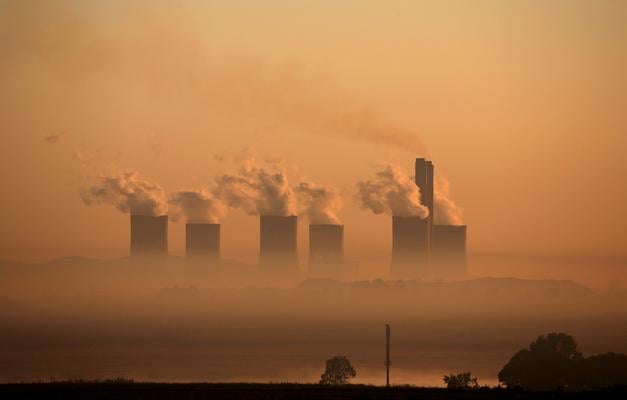Lawyers for Human Rights said this was only the second time the UN special rapporteur had entered into 'potentially precedent-setting national litigation'.

FILE PHOTO: Steam rises at sunrise from the Lethabo Power Station, a coal-fired power station owned by state power utility Eskom near Sasolburg, South Africa, March 2, 2016. Picture: REUTERS / Siphiwe Sibeko
The poor air quality on the Highveld has become an international concern – so much so that the United Nations now wants to step in, in a court case between environmental lobby group groundWork and government over the issue.
Lawyers for Human Rights (LHR) will be in the High Court in Pretoria this month to present arguments on behalf of the UN’s special rapporteur on environment and human rights, David Boyd, around why he should be admitted as a friend of the court.
LHR said in a statement last week this was only the second time the special rapporteur had entered into “potentially precedent-setting national litigation”.
In the case, groundWork wants the court to declare that the levels of air pollution are in breach of the constitution in the Highveld Priority Area – a 31 000km2 swathe of land stretching over Mpumalanga and part of Gauteng, which government in 2007 declared required “specific air quality management action”.
The group also wants Environmental Minister Barbara Creecy declared duty-bound to prescribe regulations giving legal effect to an air quality management plan.
Boyd says his interest in the case is “to ensure proper development of states’ obligations in protecting the enjoyment of human rights from environmental harm”.
“The levels of air pollution in the Highveld Priority Area are among the highest in the world, making this case of global importance,” he said in an affidavit.
“Leading global research shows that in 2017, there were 19 410 deaths in SA attributable to ambient or outdoor air pollution, including 18 300 deaths caused by fine particulate matter and 1 110 deaths caused by ambient ozone pollution.”
Boyd said South Africans lost a total of 617,500 years of healthy life to air pollution, every year.
The diseases at the root of the problem were both foreseeable and preventable, he said, “and therefore constitute prima facie violations of the right to health”.
He said the poor, women, the elderly, people with pre-existing health conditions and children were hardest hit.
“Children are uniquely vulnerable … Their developing brains and bodies are exquisitely sensitive to toxic substances.”
He said air pollution was the leading risk factor for acute lower respiratory tract infections, like pneumonia, in children under the age of five.
If admitted, Boyd said, he planned on making representations regarding seven “key steps” states had to take to ensure the right to a healthy environment was realised.
“At each stage, states must ensure the public is fully informed and has an opportunity to participate in decision-making processes. Every effort should be made to engage with those in vulnerable situations whose voices are too often silenced.”
– bernadettew@citizen.co.za
For more news your way, download The Citizen’s app for iOS and Android.
Download our app